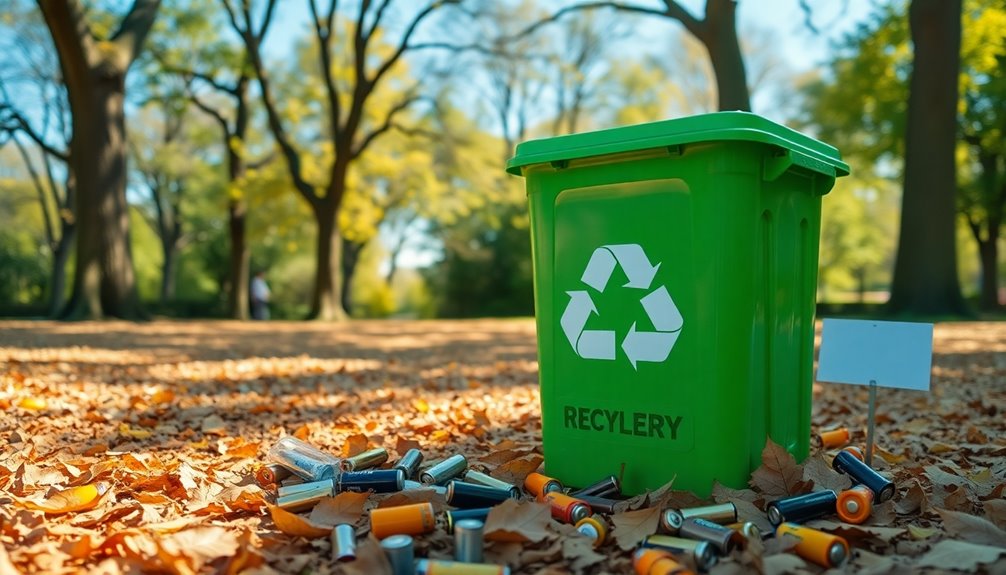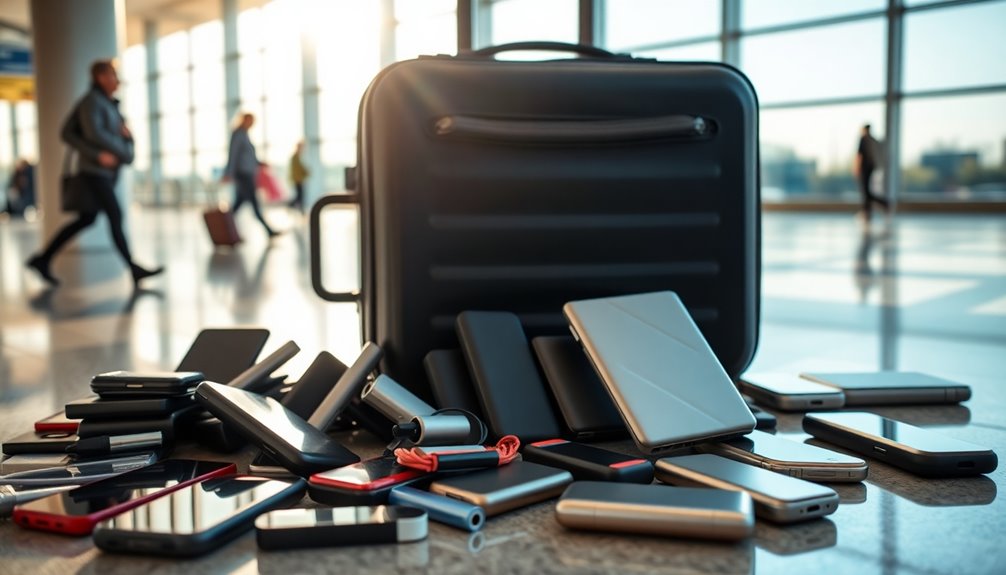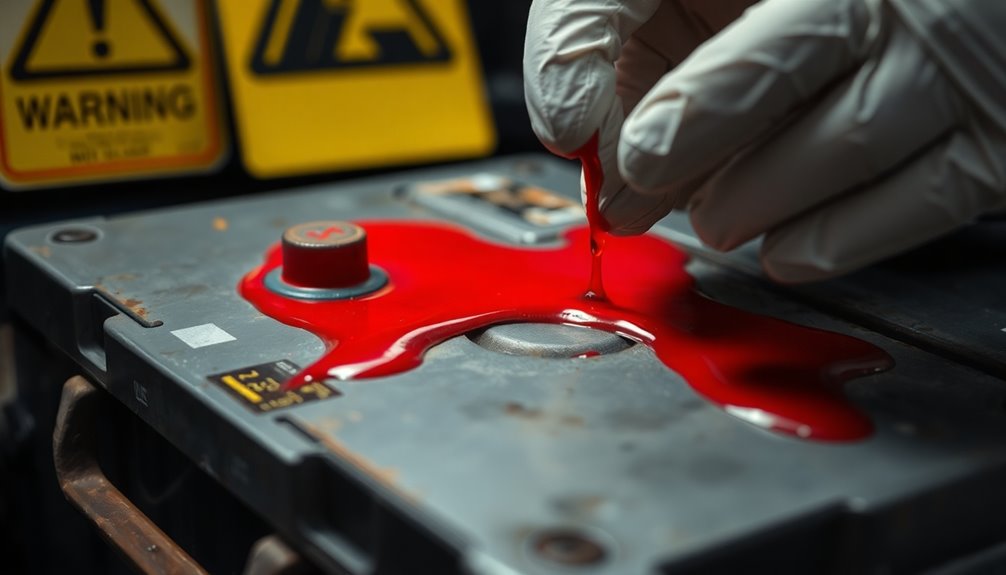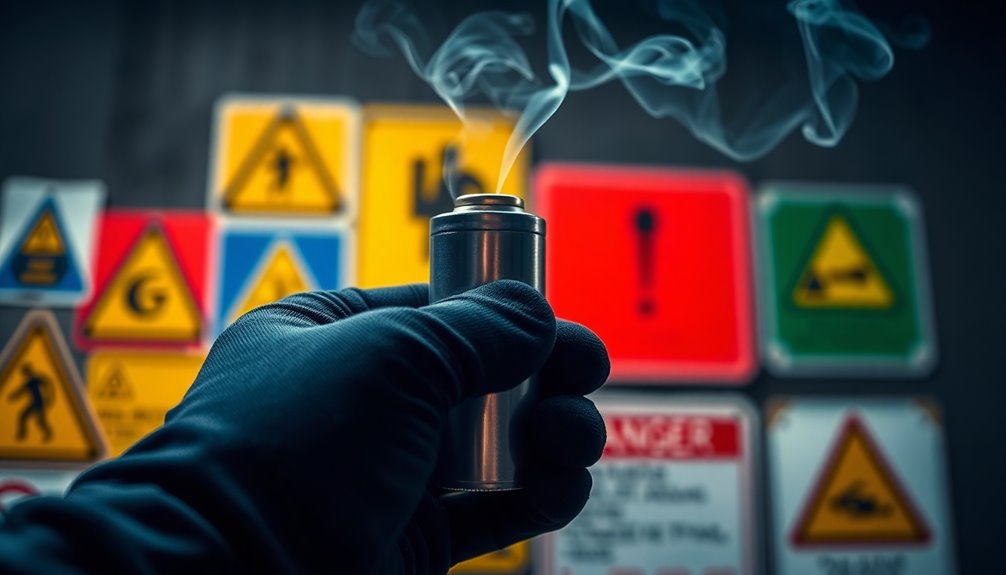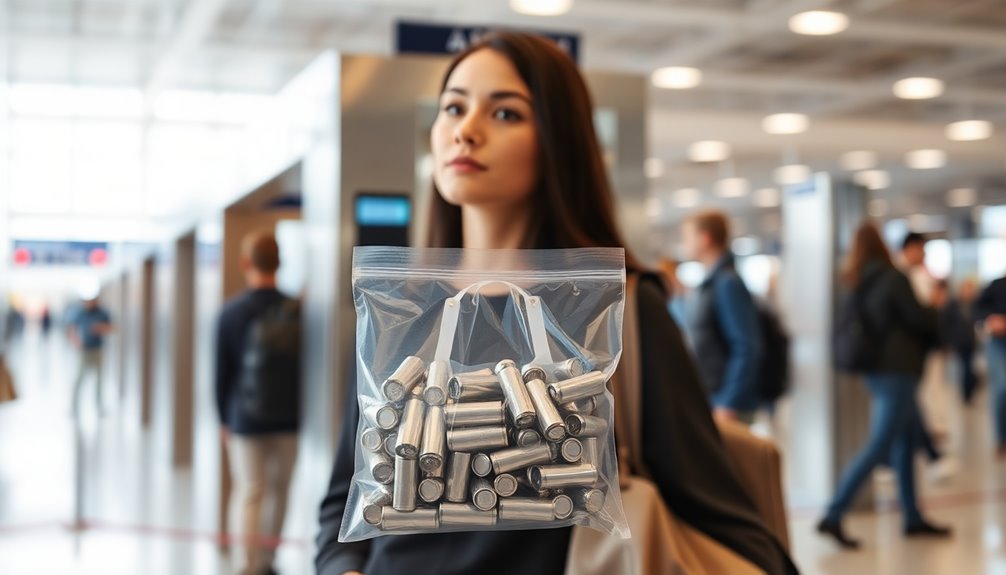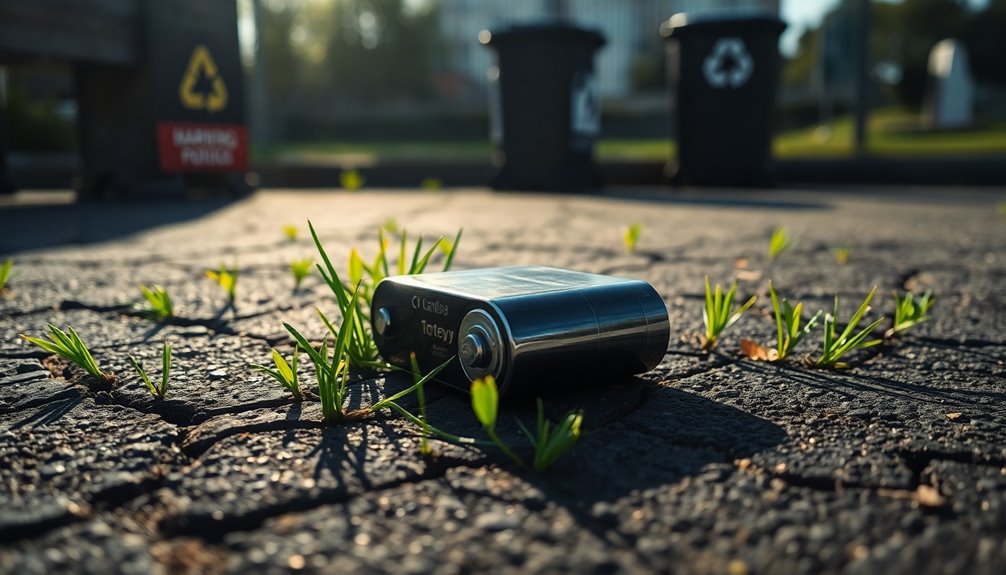You need to dispose of batteries safely to protect the environment. Start by checking local guidelines, as many areas classify batteries as hazardous waste. For alkaline batteries, recycling options are often available. Lithium-ion and lead-acid batteries require specific collection sites. Retailers like The Home Depot and programs like Call2Recycle offer convenient recycling solutions. Always tape over terminals, especially for 9-volt batteries, to prevent accidents. Remember to store them in a cool, dry place until disposal. Following these tips guarantees you're doing your part. Keep exploring to discover more about proper disposal methods and local resources!
Key Takeaways
- Use Earth911's Recycling Search to find local battery recycling options and authorized centers.
- Take lithium-ion and lead-acid batteries to designated recycling facilities for safe disposal.
- Participate in municipal collection events for hazardous waste to properly dispose of batteries.
- Consider mail-in programs like Call2Recycle for shipping used batteries safely.
- Always tape over battery terminals and store batteries in non-conductive containers before transport.
Importance of Safe Battery Disposal
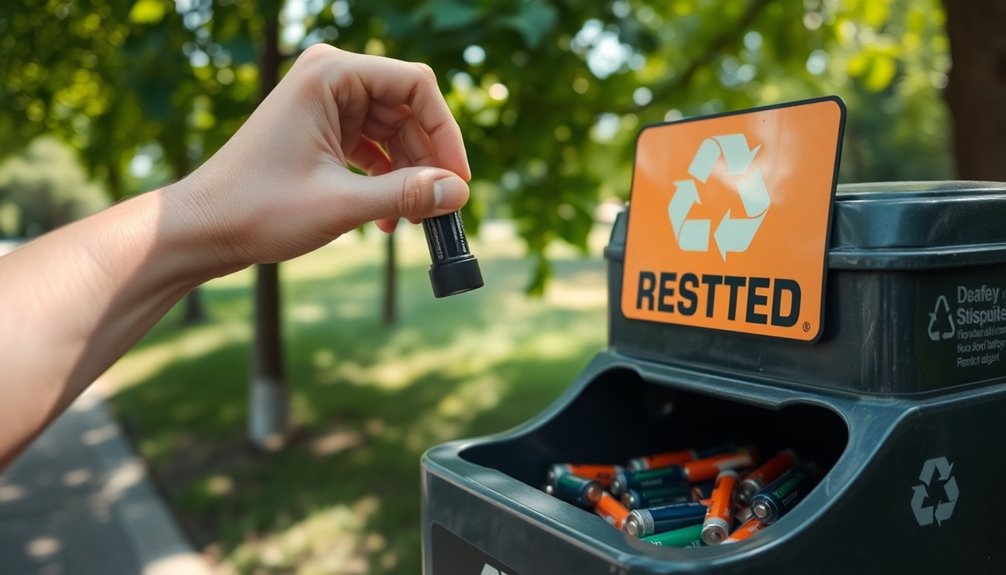
When you think about battery disposal, it's vital to realize that improper handling can seriously harm the environment. Batteries contain hazardous chemicals that can leach into soil and water, leading to contamination.
Each year, over 180,000 tons of battery waste are generated, making responsible disposal critical for sustainability. By choosing to recycle your batteries, you help recover valuable materials like lead, lithium, and nickel, reducing the need for raw material extraction.
Additionally, safe disposal methods can save up to 90% of the energy required to produce new batteries. Compliance with local regulations guarantees these hazardous substances are managed effectively, preventing legal issues and protecting our ecosystem.
Prioritize safe disposal to contribute positively to the environment.
Types of Batteries and Their Disposal

Understanding the different types of batteries and their disposal methods is essential for responsible environmental stewardship.
Here's a quick guide to help you navigate safe disposal:
- Alkaline batteries: Generally safe for disposal, but recycle in California.
- Lithium-ion batteries: Require special handling due to hazardous materials; recycle at designated facilities.
- Lead-acid batteries: Highly toxic; must be recycled through auto retailers.
- Nickel-cadmium batteries: Contain carcinogenic cadmium; need special disposal to prevent environmental contamination.
- Rechargeable batteries: Eco-friendly but must be recycled at battery recycling locations to avoid harmful metal release.
Recycling and Disposal Methods
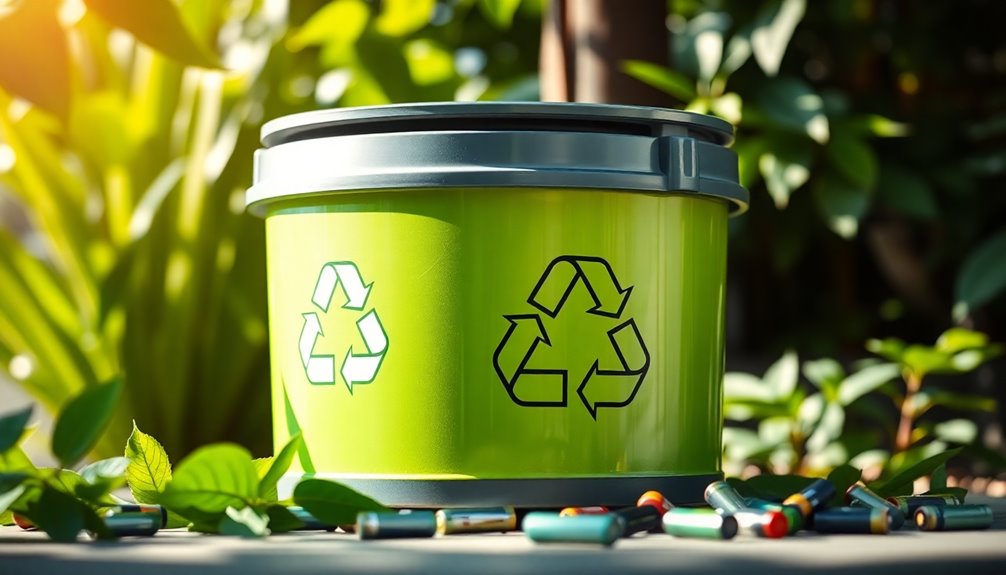
Properly recycling and disposing of batteries is essential for protecting the environment and your community.
To find a battery recycling location, check Earth911's Recycling Search or visit retailers like The Home Depot, which have collection bins for rechargeable batteries in use.
Many municipalities organize collection events for residents, allowing you to dispose of hazardous waste safely.
If you prefer mail-in options, programs like Call2Recycle offer kits for shipping used batteries to recycling facilities.
Before transport, always tape over battery terminals and store them in non-conductive containers to avoid safety hazards.
Safety Precautions When Disposing
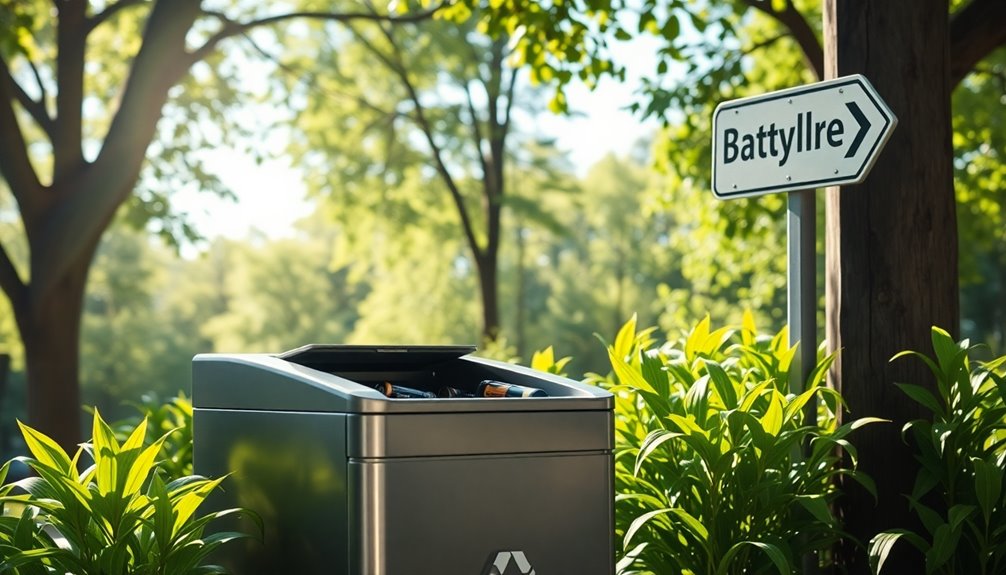
To assure safe battery disposal, it's crucial to take specific precautions that protect both you and the environment.
Start by following local hazardous waste guidelines to guarantee proper handling and disposal of batteries. Always store batteries in a cool, dry place to minimize the risk of leakage or fire hazards.
Here are some key safety precautions to keep in mind:
- Tape over terminals of 9-volt batteries to prevent short-circuiting.
- Store batteries in non-conductive containers to avoid sparks.
- Keep different battery types separate during transport.
- Wear gloves when handling damaged or leaking batteries.
- Dispose of batteries through household hazardous waste disposal programs.
State Regulations on Battery Disposal
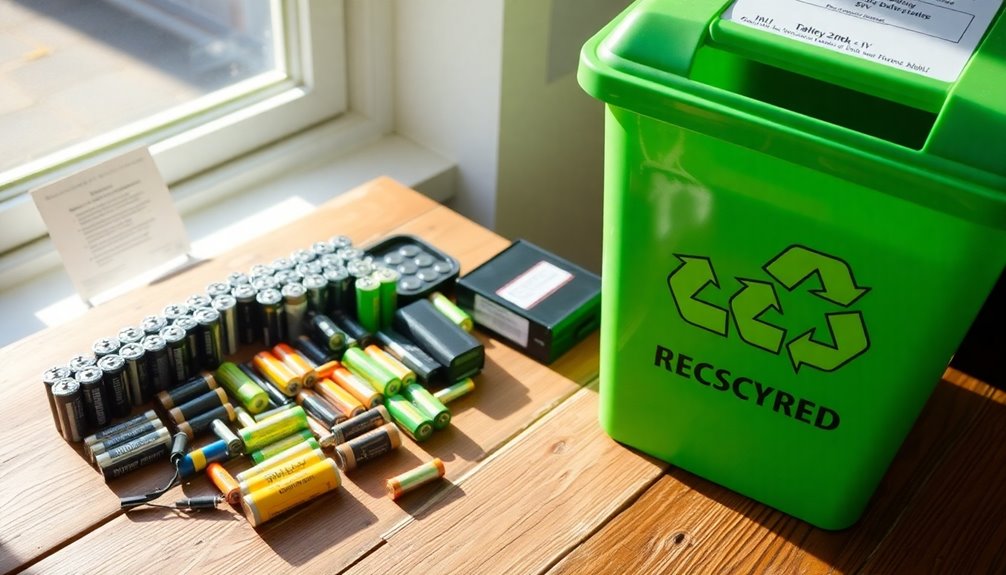
When you're ready to dispose of your batteries, it's important to be aware of state regulations that govern this process. Many states classify all battery types as hazardous waste, making it illegal to toss them in the regular trash.
Some states enforce specific laws requiring the recycling of rechargeable batteries, with penalties for improper disposal. To stay compliant, check local guidelines and identify authorized recycling centers or hazardous waste facilities in your area.
Battery manufacturers often provide information on where to recycle their products, so look for battery recycling seals. By following these regulations, you'll contribute to environmental protection and guarantee safe battery disposal.
Always stay informed to avoid legal penalties while protecting our planet.
Frequently Asked Questions
How to Dispose of AA Batteries at Home?
To dispose of AA batteries at home, you've got a few options.
First, check your local regulations; some states allow regular trash disposal, while others require recycling. If you're in California, recycling's a must.
Gather used batteries in a non-conductive container, like a cardboard box.
Before tossing any 9-volt batteries, tape their terminals to prevent fire risks.
Finally, look for nearby recycling centers or programs to guarantee you're disposing of them safely.
Where Is the Best Place to Dispose of Batteries?
When you're looking to dispose of batteries, think of recycling centers, retailer drop-offs, and community events.
You'll find that designated recycling centers accept specific battery types, ensuring safe handling. Stores like Home Depot and Best Buy make it easy with in-store drop-off programs.
Plus, local collection events help you dispose of batteries responsibly.
Don't forget to check state regulations, as some areas treat batteries as hazardous waste, needing proper recycling.
How Do I Dispose of AA Batteries in Maryland?
To dispose of AA batteries in Maryland, you've got a few options.
You can toss them in the regular trash, but check your local regulations first. Many counties encourage recycling, so look for designated drop-off centers at solid waste facilities.
Retailers like Home Depot and Best Buy often have battery recycling boxes too.
If you've got a lot, consider using a mail-in program like Call2Recycle for easy and responsible disposal.
Does Autozone Take Old Batteries?
Yes, AutoZone does take old batteries! You can bring your used automotive batteries to any AutoZone store for safe recycling.
Not only will they guarantee proper disposal of hazardous materials, but you might also score a discount on your next battery purchase.
By recycling your old batteries there, you help prevent toxic substances from contaminating the environment while contributing to the reclamation of valuable materials.
It's a win-win for you and the planet!
Conclusion
In the grand tapestry of environmental stewardship, each battery you dispose of safely adds a vibrant thread. By choosing the right disposal method, you're not just clearing clutter; you're nurturing the planet like a gardener tending to a delicate bloom. Remember, every small action counts—your choice to recycle or properly discard batteries is a step toward a cleaner, greener future. So, let's guarantee our earth flourishes, one battery at a time!

